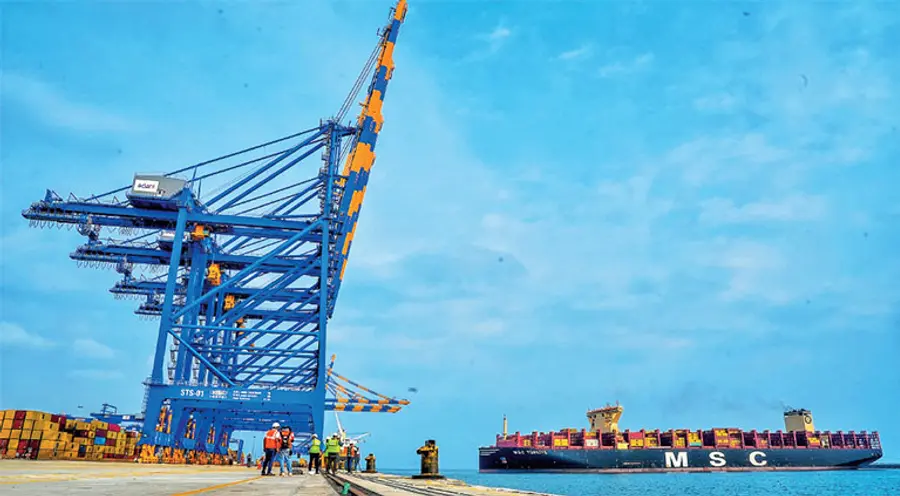Vizhinjam International Seaport implemented a number of precautions to guarantee safety when handling ships and cargo as the city was battered by intense monsoon rain.
Tall waves battered the neighboring beaches, and the sea was even rougher inside the breakwater due to the strong winds. Numerous actions were taken, according to an official, including putting best procedures for ship piloting, anchoring, and mooring into effect. Shipmasters and vessel agents keep an eye on the weather till the ships can enter and exit safely. Because of the possible roughness of the sea, extra care is taken during mooring operations and measures are taken to secure the ships. By doing this, the ship won’t shake while docked.
Because the container ships must sail in, turn, and dock, the pilot vessel will also carefully lead the ships. According to an official, silt, weeds, and other blockages were removed from drains to guarantee that stormwater flows smoothly. Additionally, the connector guaranteed backup power and a consistent power source. Because cranes are operated from an operations room rather than by operators sitting atop them as at other ports, rain won’t interfere with container loading.
“Despite intense rain, container loading and unloading can proceed. One benefit of this is that ships will be able to return on time,” he continued.
However, because it will be challenging to throw rocks into the water and secure them due to the heavy waves and current, breakwater extension construction will be slowed down due to the severe sea. Most days, the breakwater is swept over by waves that pound onto it. In past years, breakwater construction slowed significantly during the June–August monsoon season. To construct the barrier, a big ship throws rocks into the ocean.
During the monsoon season, the port staff receives safety instruction. It now handles almost one ship every other day and has a large amount of container traffic, making it one of the busiest ports in the south.

